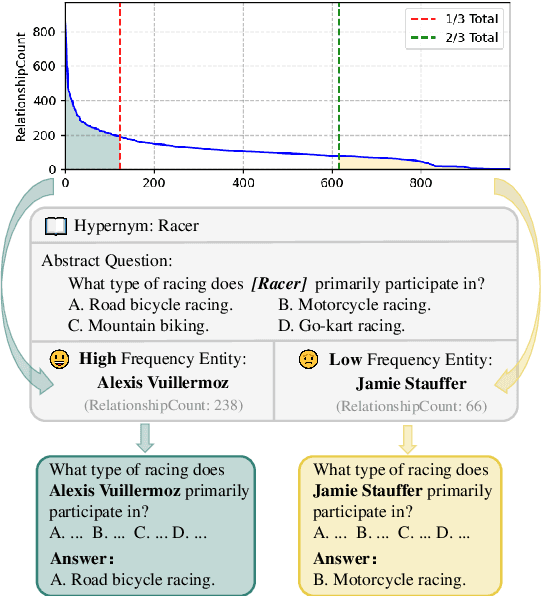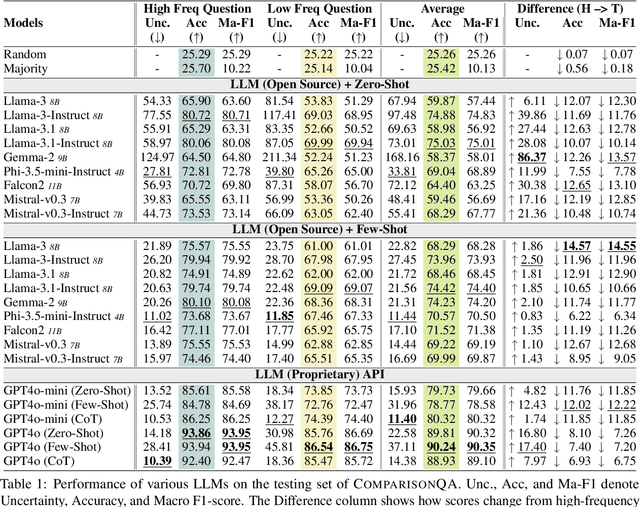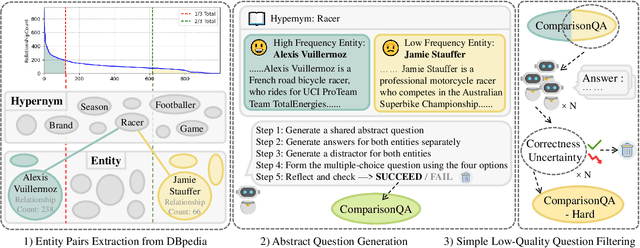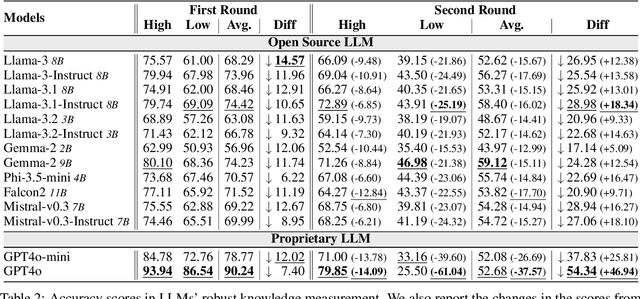ComparisonQA: Evaluating Factuality Robustness of LLMs Through Knowledge Frequency Control and Uncertainty
Paper and Code
Dec 28, 2024



The rapid development of LLMs has sparked extensive research into their factual knowledge. Current works claim that LLMs fall short on questions requiring less frequent knowledge. However, their proof is incomplete since they only study the influence of entity frequency, which can not fully represent knowledge frequency. So we introduce ComparisonQA benchmark, containing 283K abstract questions, each instantiated by a pair of high-frequency and low-frequency entities. It ensures a controllable comparison because the difference of knowledge frequency between such a pair is only related to entity frequency. In addition, to avoid possible semantic shortcuts, which is a severe problem of current LLMs study, we design a two-round method for knowledge robustness measurement utilizing both correctness and uncertainty. Experiments reveal that LLMs exhibit particularly low robustness regarding low-frequency knowledge, and GPT-4o is even the worst under this measurement. Besides, we introduce an automatic method to filter out questions with low-quality and shortcuts to form ComparisonQA-Hard. We find that uncertainty effectively identifies such questions while maintaining the data size.
 Add to Chrome
Add to Chrome Add to Firefox
Add to Firefox Add to Edge
Add to Edge